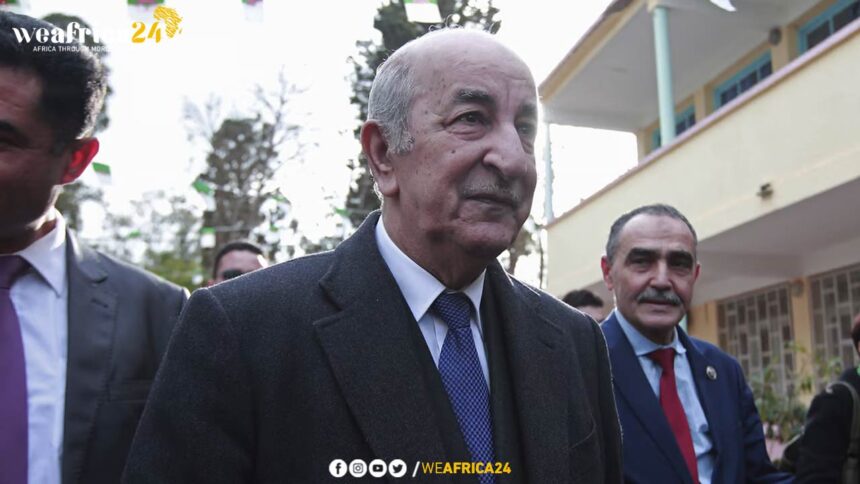With less than four months remaining until the presidential election, the Algerian presidency has initiated a meeting with political parties represented in elected assemblies. While organizing the upcoming election was not the primary focus—though democratic issues were discussed—the agenda included broader topics such as foreign policy.
An Unprecedented Gathering
For the first time since assuming office in December 2019, President Abdelmadjid Tebboune met with various Algerian political parties on Tuesday, May 21. However, the invitation was extended only to parties representing national and local assemblies, excluding those who boycotted the 2021 legislative and regional elections, such as the Rally for Culture and Democracy (RCD) and the Union for Change and Progress (UCP). Notably, Zoubida Assoul, the UCP president, was the first to announce her candidacy for the anticipated presidential election set for September 7.
Skepticism and Criticism
RCD President Athmane Mazouz was quick to criticize the initiative, predicting its failure. He suggested that the meeting left room for multiple interpretations: “Is this an attempt to definitively close off the next presidential election? Such a scenario seems plausible given the recent authoritarian revisions to the penal code. Alternatively, with its credibility severely undermined, the government might be seeking to legitimize its approach through the endorsement of certain parties and organizations. Excluding political parties that advocate for political solutions to the crisis renders this initiative ineffective.”
With 27 political formations invited on May 11 by Boualem Boualem, the director of the presidential office. Previously, President Tebboune had met with political representatives and personalities separately, usually upon their request.
The meeting, held in the grand hall of the International Conference Center in Algiers and closed to the media, lasted until approximately 8 PM, with eight hours of uninterrupted discussion. Images released by the presidency showed President Tebboune greeting each political leader individually—each party leader was accompanied by two senior officials.
Participants and Discussions
Among the attendees were opposition figures like Louisa Hanoune of the Workers’ Party, Soufiane Djilali of Jil Jadid, and Youcef Aouchiche, the first secretary of the Socialist Forces Front. Also present were leaders of parties aligned with the government, such as Abdelkader Bengrina of the Islamist movement El Bina, Mustapha Yahi of the National Democratic Rally, Abdelkrim Benbarek of the National Liberation Front, and Belkacem Sahli of the National Republican Alliance.
Consensus on Foreign Policy
According to those who spoke after the meeting, discussions largely centered on foreign policy, concluding with a consensus and support for the Algerian state’s initiatives, particularly regarding Palestine. Louisa Hanoune and Abdelali Hassani, president of the Movement for Society and Peace, noted that the parties reiterated “their support for the state’s positions on just causes worldwide, including Palestine.”
Hanoune praised Algeria’s role in international forums, especially at the United Nations Security Council, and warned against the threats posed by “the Zionist entity and its supporters, which aim to destabilize the Maghreb and Sahel regions.” She also questioned President Tebboune on the ban of pro-Gaza marches in Algeria, arguing that solidarity with the Palestinian people also meant “defending ourselves against Zionist and Emirati plots targeting our country and the Sahel region.”
A Promising Space for Debate
Djamel Benabdeslam, president of the New Algeria Front, shared that President Tebboune and the parties agreed during the debate on “the necessity of preserving the country’s stability and continuing the development process across all sectors and regions of the country.”a







